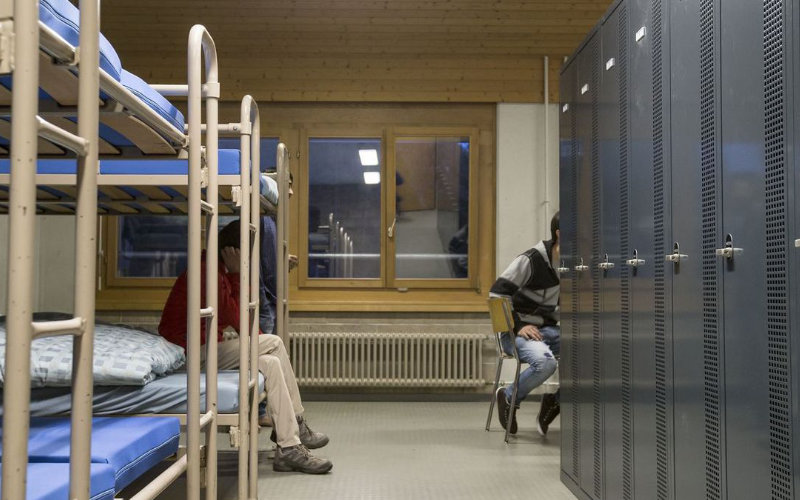Asylum Reform Under Fire: Caritas Warns of Rushed Procedures Endangering Vulnerable Seekers

Caritas warns about the limits of accelerating asylum procedures in French-speaking Switzerland. The organization responsible for the legal protection of asylum seekers fears much shorter deadlines.
A major reform of asylum came into force in 2019, after its approval on June 5, 2016. It aims to shorten procedures and clear rejected applications within a fairly short period of time. Responsible for the legal protection of asylum seekers in French-speaking Switzerland, particularly at the federal asylum center (CFA) in Boudry, Caritas expresses concerns about this drastic reduction in deadlines. "While it is difficult to identify vulnerable people within such short deadlines, further accelerations are nevertheless now being requested and implemented," the organization writes. Yet, "it is nowhere mentioned that in return for these accelerations, additional measures are absolutely necessary in order to allow all those in need to access asylum," denounces Caritas in a press release cited by La Tribune de Genève.
The organization notes that the system "has its limits," citing the problems related to the 24-hour procedure, which aims to settle the case of applicants from the Maghreb who are not numerous to obtain asylum. Caritas also raises the limited access to medical examinations, a situation that would penalize applicants. To overcome these difficulties, Caritas calls for an adaptation of the system to vulnerable people, by inserting a preliminary vulnerability assessment and an exchange between medical staff and legal representation into the procedure.
In response to these criticisms from Caritas, the State Secretariat for Migration (SEM) states that with regard to the detection of vulnerable persons, "all asylum seekers have access to medical care from the first day, including, of course, persons subject to the 24-hour procedure. In case of somatic or psychological disorders, they can contact the Medic-Help health service in the federal centers for asylum seekers." "And the spokesperson for Federal Councillor of the Federal Department of Justice and Police Beat Jans adds: "In case of more complex medical problems, asylum seekers are examined and treated by a partner doctor. In case of emergency, they are transferred to the hospital."
Regarding a possible further acceleration of procedures, the State Secretary for Migration explains: "The 2019 revision of the Asylum Act aimed to ensure asylum procedures that are as short as possible and in accordance with the rule of law. Asylum seekers must know as quickly as possible whether they can benefit from protection or whether they have to leave the country. The SEM is therefore constantly optimizing its procedures." The official recalls that "the 24-hour procedure currently concerns exclusively persons from the Maghreb countries" who almost never meet the conditions. According to the SEM, asylum was granted to only 0.1% of Moroccan applicants, 0.2% of Tunisians and 0.7% of Algerians.
The issue is dividing in parliament. "Of course I respect Caritas’ position. But we must distinguish between principles and reality. Because no, asylum is not a ’right for every person in need’. It is reserved for those who meet certain criteria," reacted Jacqueline de Quattro (PLR/VD). "If we want vulnerable people to be properly and quickly cared for, we have to fight abuse. And so start by admitting that there is some," she added. Before the reform, the average duration of procedures ranged from 250 to 466 days (2015-2018). Since 2021, the processing speed of asylum applications has more than doubled. "The objective of deciding on 60% of asylum applications without exceeding the 140-day deadline has been achieved," says the SEM. But in reality, the system does not last 24 hours, but 22 days on average.

